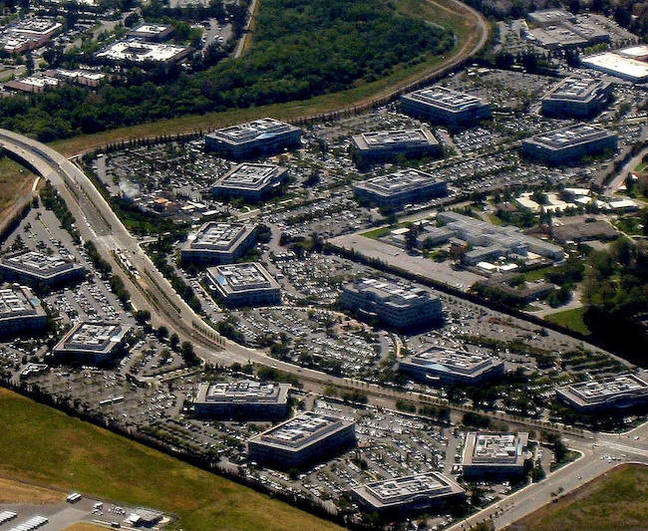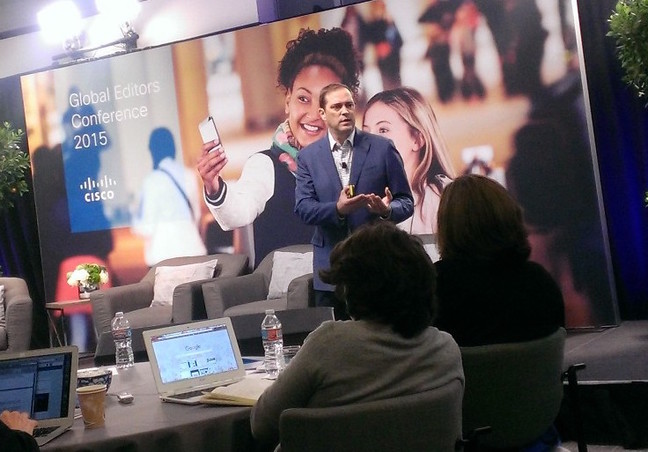This article is more than 1 year old
Pitchforks, torches, and awful quotes – we read what Cisco's CEO said
Must go faster, must go faster!
There is a tech angle, here, we swear
The choices made by technology companies affect the lives of billions of people every day. Some are overt: scrimping on security in the name of executive bonuses leads to security incidents, which lead to identity theft. The real-world impact being that very real people end up liable for massive debts they didn't incur. In my own life I have meet three such people who have been stuck with bills for over $30k.
Subtler choices affect us too. The vacuuming up of all of our data into nice, easy to data-mine containers is changing our society. Police forces around the world are hoping to get access to that data to convict us all of minor crimes, petty civil offenses, and even delve into precrime.
The very real consequence is that we, as a society, are throwing away the entire concept of "innocent unless proven guilty." The sheer amount of data that technology enables us to collect on individuals means that we are now a society where everyone is guilty of something, we just have to crunch the numbers to find out what, when, and where.
I see this every day in my job as consultant. CEOs and suits – the executive layer of society – make decisions about products, services, security, and privacy based not on evidence or careful consideration, but on emotion and "gut feel."
In the startup world, this almost always ends in disaster. The "gut feel" CEOs are usually very "high touch." They're typically engineers or developers who are emotionally attached to the widget or application they've developed and they brook no heathens in the church they've built!
Venture capitalists make them hire on marketing, sales, and channel heads, but a "high touch" CEO never listens to them. They view these professionals not as a source of insight and experience but merely as instruments to enact their will. This is typically accompanied by micromanaging, personality conflicts, the departure of the executives in question and – ultimately – failure.
Very different things happen in a mega-corporation.
The Cisco culture
Once past a certain point, a company is large enough that the weight of its own bureaucracy tends to blunt the worst excesses of an executive's irrationality. They can crash around emoting their feels all over the place, but getting things done takes so long that (most of) the craziest ideas are silently killed off.
Eventually, however, executives left in power long enough manage to transform their empires simply by hiring people who are the most responsive to their emotions and firing (or driving away) everyone else. A CEO with a startup persecution complex, such as I discussed about Robbins above, is likely to create a culture of fear, not innovation.

Cisco's sprawling campus north of downtown San Jose ... Photo by Travis Wise
This is not a culture where people filled with wonder, hope, and the desire to experiment with new ideas will flourish. It is one where everyone is constantly looking over their shoulder. It is a siege mentality, not one of exploration.
It leads to desperately trying to kill the competition before they kill you, not to inventing or innovating.
Consider these other Robbins quotes:
"Our customers are moving to converged technology. They are fundamentally more concerned about operational costs than capital expenditure. So far, in our history, that's not been the case."
On software-defined networking: "Everything we build will be programmable; everything in the data center is going to be converged. And we have to drive security to provide analytics of the network in motion, showing what's happening at a given moment in time.
"One of the early-use cases of these analytics is in the security architecture. We can see threats coming in, which will help us solve one of the biggest challenges for customers.
"Allow the network to take advantage of machine learning to build intelligence from its traffic, and act on threats if suspicious traffic is detected. There is no longer a central castle. We can't put a moat around it. We have to do security differently."

New broom ... Cisco chief exec Chuck Robbins
Putting these quotes together with those at the start of this article and with my own experience, I am left with one conclusion. Cisco under Robbins is going to evolve to chase subscription revenue and is going to do so by building an even more proprietary "walled garden" with even more vicious lock-in than Cisco already has.
Outsiders – be they outside analysts, partners, or even those startups Cisco acquires for technology or engineers – will be treated with suspicion. Anything that questions or contradicts the CEO's vision – which appears to be to fold all the world's networks into a Cisco-controlled datahive – will be met with the sort of passionate response you'd get if you locked SJWs up in a room with Tea Partiers and asked them to solve all the issues in the Middle East.
The ultimate result of Cisco's siege mentality would be all our data and network interactions being inspected, quantified, categorized, and controlled by Cisco's machine intelligences. What world will Robbin's feels build? What are the unintended consequences of his vision for Cisco's corporate future?
Where does all the metadata generated about your data, your interactions, and so forth go? Once Cisco has created exabytes of "data about our data," does it then start selling access to the world's governments? Precrime done not by a startup, but by a megacorporate behemoth with the resources to make it look good, regardless of any evidence that it isn't entirely accurate?
I don't know. I can't know. Questioning is important, but there isn't enough evidence for the above conjecture to be more than speculation and emotive paranoia on my part. I accept that. And, at the end of the day, Robbins is rolling-around-in-it rich with one of the best jobs in the entire world, and I'm a dirt-poor nobody. I do actually bear these things in mind when ranting online.
